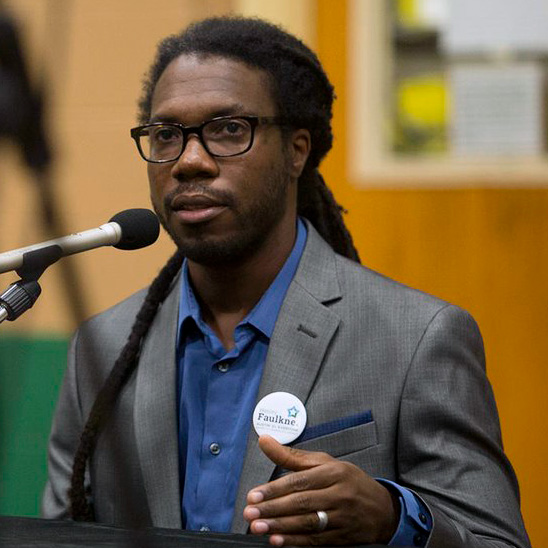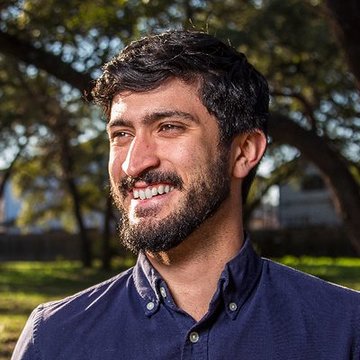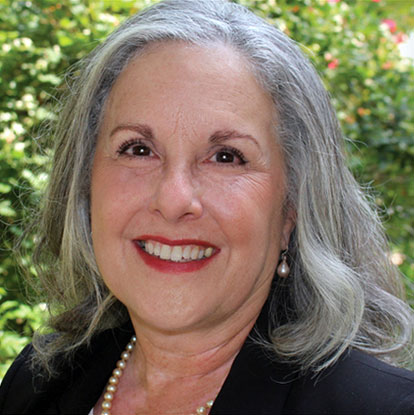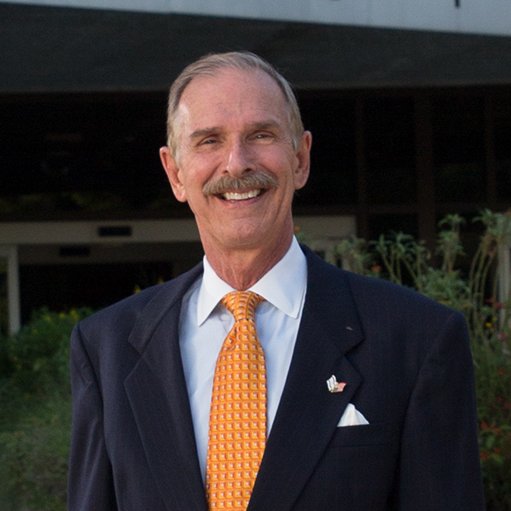2016 Council Survey Results
Edit this pageSince 2011, in every City of Austin election, Open Austin has submitted a policy questionnaire to all the candidates. We ask for their response on a variety of open government and important civic tech issues. We do not endorse candidates, but we do encourage voters to be informed on candidate positions.
There are 5 council races this year
The elections this year are for districts 2, 4, 6, 7, & 10. The other 5 Council seats and the Mayor will be up for election in 2018.
Don’t know your district? Find out now
District 2 has 3 candidates running for City Council. Incumbent Delia Garza and challenger Wesley Faulkner responded to our survey.
Open Data Policies
Question 1 of 3
Austin’s open data program currently operates under the city's 2011 Open Government Resolution. Do you think the city should commit to releasing open data to the public by enacting the city’s open data policy as an ordinance?

Wesley Faulkner: Yes, we should structure our government in a way that makes data easier to access.

Delia Garza: I believe that Austin is on the right track with the Austin Open Data Portal we currently maintain on our City’s website. I believe we can always find ways to improve these practices. I would be open to considering a new policy in resolution or ordinance form, but believe we could also be effective simply by reevaluating our progress and practices and working with staff to improve the data sharing approach we’re currently using.
Question 2 of 3
The Sunlight Foundation recommends an open data strategy of “real time access," in which cities collect information digitally instead of on paper, and then update the public resources they publish on the internet continuously as new information is collected. Do you agree with that strategy? Do you want city agencies to make any particular changes to meet that goal?

Wesley Faulkner: Yes, I agree, just as long as the information does not contain sensitive data that could cause harm to its citizens.

Delia Garza: One of the issues I’ve heard feedback from since before being on Council is the need to streamline many of our City processes. For example, one of the criticisms of our development process before and after the release of the Zucker Report dealt with the fact that many of our development processes were handled on paper rather than digitally. Since the release of that report, we have taken significant steps and increased funding and staff to improve those processes, which we are still working on today. I’ll support transforming more processes to digital moving forward to give our residents a better experience working with the City and improve our efficiencies, which after the initial investment for the technology will save our taxpayers money in the long term.
Question 3 of 3
Would you support a resolution to require that any software or software services purchased by the city must be accompanied with an open data plan that indicates how public data managed by that system will be made available to the public?

Wesley Faulkner: Absolutely.

Delia Garza: I am open to supporting this policy overall. The City has a lot of sensitive data for our residents that have Austin Energy account, enroll their children in our youth programs, and so forth, and we must be careful that while we’re sharing data in ways that provides transparency and functionality for our citizens that we’re also protecting the privacy of Austinites. There could be instances where data could be shared, but for privacy issues for customers’ needs an extra layer of review and/or process before releasing information.
Innovation Office and City Services
Question 1 of 2
Would you support a resolution to require that any software or software services purchased by the city must be accompanied with an open data plan that indicates how public data managed by that system will be made available to the public?

Wesley Faulkner: I would like to modernize all systems and to leverage the data to find inefficiencies that can be eliminated.

Delia Garza: The Innovation Office should form a strong partnership with the Technology and Regulatory Affairs Department to find effective approaches to sharing City data on our website, as well as conducting effective outreach to ensure that residents know what data is available to them. We certainly have areas where we can expand and improve in our data sharing practices, but I believe that many of our residents aren’t aware of the Austin Open Data Portal that has a wide array of data available today. We must ensure that as we improve our practices, that we wrap in the public throughout the process to get their feedback and ensure our citizens are informed of the services we’re making available for them.
Question 2 of 2
We often talk about the city government's role as a producer of open data. Can the city also get better at consuming data to inform future decisions? What can Austin do to help its employees analyze and learn from the massive amount of data being generated by governments and other entities?

Wesley Faulkner: We need to make sure that the data, and the stats derived, are extracted by people who are trained in statistical analysis. Also they shouldn't just record the results, but also the methods they used to get them.

Delia Garza: I’m a strong believer in utilizing data when making policy decisions for our City. We often look at best practices of other Cities, which are often based in data resulting from their experiences. How data can be used varies widely depending on the type of policies and services being considered, which presents exciting opportunities as well as challenges to finding the most effective way to use data as we create policies to shape our City. I would welcome any input from your organization or other technology and data experts on how we can improve our data usage practices moving forward.
Digital Inclusion
Question 1 of 1
There are strong benefits to internet connectivity, including access to city information and services. Many residents, however, experience barriers to access. What do you see as the city's responsibility regarding digital inclusion, and what steps would you take to address that concern?

Wesley Faulkner: I would like to see a installation similar to the LinkNYC kiosks. It is cost effective and highly successful.

Delia Garza: In 2014, Council passed Resolution 20141120-074 which adopted a Digital Inclusion Strategic Plan which largely aimed to make access to electronic resources more widely available for all Austinites, including those who are currently without access. This ties into the same spirit of open data in trying to be inclusive and open with all of our residents. I believe enough time has passed that we should proactively evaluate how successful these efforts have been and find ways to improve to ensure digital equity in our City. Furthermore, when the Southeast Library was in danger of closing last year, I funded out of my office budget close to $50,000 to fund a portable building for the computer lab so that residents would not lose access to the free internet services provided at the Library.
Data Resources
Question 1 of 4
Austin lags behind some other cities in publishing data about actions taken by its city council. For instance, New York and San Francisco provide searchable databases with all votes cast and legislation sponsored by each council member. Do you support publishing similar information for Austin? How do you think the council should address any technical challenges in making that data accessible online?

Wesley Faulkner: Yes, and yes. We need to make sure the public can hold elected officials accountable and having the data will bring us most of the way there.

Delia Garza: In many ways, I feel that we’ve done a fairly good job ensuring that all information about actions taken by Council is available online and is searchable. With that being said, I do believe that have additional search functions could create a higher degree of ease for working with this information which could engage more residents in processing that information. I would be open to considering this initiative moving forward after gauging the public interest and the cost required to make these changes in our system. We did recently make a very similar change to have our campaign finance reports searchable through the Campaign Finance Data Portal, which was a step in the right direction.
Question 2 of 4
How do you think the city's police body camera initiative can improve accountability? Do you think the city should develop a policy for responding to requests from people who want copies of body camera footage of their encounters with police officers?

Wesley Faulkner: People generally act better when they know they are being monitored, for this reason the body cams should help with accountability. We should come up with a system to make sure that all video request are handled as quickly as possible.

Delia Garza: Police body cameras provide an additional layer of transparency and accountability that benefit our residents and officers alike. I know that we must also work within the constraints of state law but where we can make strong policy to ensure transparency in these cases, I would be open to supporting that type of policy. Aside from that, I believe Police videos are subject to public information requests just as almost all other City records and documents are available on request.
Question 3 of 4
Austin is in a housing affordability crisis, but the city is not consistently tracking how many housing units are being built or demolished, which is necessary for ongoing evaluation of our housing supply. Do you support requiring building permit applicants to report on their applications how many residential units will be created or demolished in the proposed work?

Wesley Faulkner: Absolutely. We need to track these changes meticulously and consistently on all official forms. Standardizing this process is a necessary step.

Delia Garza: Absolutely. We should look for efficient and effective ways to improve our data collection and reporting processes wherever possible, and this is definitely an area for opportunity with very little cost or effort involved. Affordable housing has been one of my top priorities since being elected, and I believe by strengthening the data available in this area we’ll be able to make more impactful decisions in regards to our affordable housing investments.
Question 4 of 4
Do you support a policy of requiring disclosure of the data used to produce city-funded surveys (e.g., anonymized survey responses, demographic information, data maps, questionnaires, and details about survey methodology)?

Wesley Faulkner: Yes.

Delia Garza: To my knowledge, a lot of this information is released to the public in some form currently. I’m open to seeing how we can further improve access to this data for our residents. I understand the importance of methodology and language when submitting surveys and questionnaires, and believe that releasing this information could help improve our process for gathering public input both on the front and back end. This would also help with transparency overall, and would also be an invaluable tool for Council in that we would have additional context when making decisions about policies and programs that impact our City and our residents.
District 4 has 3 candidates running for City Council. Incumbent Greg Casar was the only candidate to respond to our survey.
Open Data Policies
Question 1 of 3
Austin’s open data program currently operates under the city's 2011 Open Government Resolution. Do you think the city should commit to releasing open data to the public by enacting the city’s open data policy as an ordinance?

Greg Casar: I'm very supportive of open government and open data, and I've authored resolutions to promote this cause on difficult issues such as our police body camera footage. I'm open to the idea of codifying some of our open government and open data in ordinance. It's important to note that by rule of thumb, usually directives to our city staff (internal direction) is in resolution format, and ordinances are usually established as laws that govern private citizens' actions. If we need help getting our city staff to make our open data needs a higher priority, it may be most effective to bring this to the attention of the new city manager, utilize the auditor's authority to review and critique city departments' procedures, and/or make budget amendments.
Question 2 of 3
The Sunlight Foundation recommends an open data strategy of “real time access," in which cities collect information digitally instead of on paper, and then update the public resources they publish on the internet continuously as new information is collected. Do you agree with that strategy? Do you want city agencies to make any particular changes to meet that goal?

Greg Casar: I support this strategy, while balancing other needs across our budget and operations. For example, we still have many paper systems on hand at the City that we need to move to electronic systems first from the filing of various permits for development to Code complaints, to better categorized and digitized notes for police reporting.
Question 3 of 3
Would you support a resolution to require that any software or software services purchased by the city must be accompanied with an open data plan that indicates how public data managed by that system will be made available to the public?

Greg Casar: Yes. The data that is part of a software services agreement should be open to the public whenever possible.
Innovation Office and City Services
Question 1 of 2
Would you support a resolution to require that any software or software services purchased by the city must be accompanied with an open data plan that indicates how public data managed by that system will be made available to the public?

Greg Casar: I'd like the Innovation Office utilize open data to help our community tackle some of our most serious issues. I'd like the CIO's support, alongside the police monitor's, work on APD's racial profiling data, continued work on data related to the costs and benefits of our Homeless Outreach Street Team, and our new weatherization programs focused on older low-income housing stock (for example, we have lots of permitting data about when housing stock was built in this City, along with electric meters to help us determine where low-income people are being forced into high electric bill usage because they live in older, un-weatherized housing).
Question 2 of 2
We often talk about the city government's role as a producer of open data. Can the city also get better at consuming data to inform future decisions? What can Austin do to help its employees analyze and learn from the massive amount of data being generated by governments and other entities?

Greg Casar: We’re behind on this issue. We need to empower our Office of Innovation to not just help with internal projects (as I listed above), but also to empower our departments to make culture changes. This requires us and our City Manager to empower our CIO to be more of an external leader & advocate instead of just an internal resources.
Digital Inclusion
Question 1 of 1
There are strong benefits to internet connectivity, including access to city information and services. Many residents, however, experience barriers to access. What do you see as the city's responsibility regarding digital inclusion, and what steps would you take to address that concern?

Greg Casar: Connection to the internet is becoming a more and more critical utility that everyone needs access to. From applying for jobs or college, paying an Austin Energy bill, or interfacing with dozens of government services, people need access to the internet. One of the greatest examples of how the City increases digital inclusion is free access at our public libraries. Although most people are able to access the internet from their homes, for some people (about 9%) library computers are their only access, so it is important that we maintain that service. We’re partnering with HACA and Google Fiber at our public housing, we need to make the internet service free and easy at the Airport, and expand it in new public spaces. I’m a supporter of the work we do with Austin FreeNet to provide literacy and inclusion services at key places in District 4 like ACC Highland.
Data Resources
Question 1 of 4
Austin lags behind some other cities in publishing data about actions taken by its city council. For instance, New York and San Francisco provide searchable databases with all votes cast and legislation sponsored by each council member. Do you support publishing similar information for Austin? How do you think the council should address any technical challenges in making that data accessible online?

Greg Casar: Absolutely. I believe we should add resources to our City Clerk’s office in partnership with our Communication and Technology Department to overhaul our somewhat clunky current system.
Question 2 of 4
How do you think the city's police body camera initiative can improve accountability? Do you think the city should develop a policy for responding to requests from people who want copies of body camera footage of their encounters with police officers?

Greg Casar: The City's body camera initiative can only be successful and achieve the goals of transparency and improved accountability if there are strong policies in place to ensure that members of the public can access body camera footage, especially when critical events occur such as officer-involved shootings. I strongly believe that the City must develop strong policies for body camera video footage release that promote transparency and further build trust between our communities and our police department. To that end, I helped author a resolution stating Council's desire for APD to have well-defined policies around body camera video release that reflect a consistent commitment to transparency, individual rights, and fairness for both officers and the public. The resolution also directed the City Manager to conduct stakeholder meetings with community members on the policies related to the release of body camera video. I look forward to the final policy coming back for Council review shortly. I believe that individuals who want copies of videos that they themselves are the subjects of should have as quick of access as possible. However, I think we should push beyond that baseline requirement for more transparency.
Question 3 of 4
Austin is in a housing affordability crisis, but the city is not consistently tracking how many housing units are being built or demolished, which is necessary for ongoing evaluation of our housing supply. Do you support requiring building permit applicants to report on their applications how many residential units will be created or demolished in the proposed work?

Greg Casar: I would support this requirement and believe it would not only promote greater transparency but also aid in efforts by certain communities in illustrating the challenges they face with demolitions and gentrification. We also should have this data in place to measure the success of our new Housing Strategic Plan, and to enforce our new tenants’ rights ordinances, which will likely charge developers a fee for demolition of units housing lower-income people-- the fee is assessed to help those tenants avoid homelessness.
Question 4 of 4
Do you support a policy of requiring disclosure of the data used to produce city-funded surveys (e.g., anonymized survey responses, demographic information, data maps, questionnaires, and details about survey methodology)?

Greg Casar: Yes.
District 6 has 2 candidates running for City Council. Jimmy Flannigan was the only candidate from District 6 to respond to our survey. He is challenging the incumbent, Don Zimmerman.
Open Data Policies
Question 1 of 3
Austin’s open data program currently operates under the city's 2011 Open Government Resolution. Do you think the city should commit to releasing open data to the public by enacting the city’s open data policy as an ordinance?

Jimmy Flannigan: Yes.
Question 2 of 3
The Sunlight Foundation recommends an open data strategy of “real time access," in which cities collect information digitally instead of on paper, and then update the public resources they publish on the internet continuously as new information is collected. Do you agree with that strategy? Do you want city agencies to make any particular changes to meet that goal?

Jimmy Flannigan: Yes. Real-time data is so much more valuable than archival data in getting city government and citizens closer to the real-time decision-making happening in the market. I don't have specific recommendations on how to implement.
Question 3 of 3
Would you support a resolution to require that any software or software services purchased by the city must be accompanied with an open data plan that indicates how public data managed by that system will be made available to the public?

Jimmy Flannigan: Yes.
Innovation Office and City Services
Question 1 of 2
Would you support a resolution to require that any software or software services purchased by the city must be accompanied with an open data plan that indicates how public data managed by that system will be made available to the public?

Jimmy Flannigan: I don't have any specific recommendations at this time, but I've been a web developer and database administrator for over 20 years. I get very excited about the possibilities and have the technical training to know that nearly every challenge can be overcome and every protest by staff has a solution.
Question 2 of 2
We often talk about the city government's role as a producer of open data. Can the city also get better at consuming data to inform future decisions? What can Austin do to help its employees analyze and learn from the massive amount of data being generated by governments and other entities?

Jimmy Flannigan: I'm a big fan of data-driven decisions. Coordination with partners (governments, agencies, even the private sector) could reap major benefits.
Digital Inclusion
Question 1 of 1
There are strong benefits to internet connectivity, including access to city information and services. Many residents, however, experience barriers to access. What do you see as the city's responsibility regarding digital inclusion, and what steps would you take to address that concern?

Jimmy Flannigan: We need to revisit municipal wi-fi and ensure that library access to digital resources is reinforced.
Data Resources
Question 1 of 4
Austin lags behind some other cities in publishing data about actions taken by its city council. For instance, New York and San Francisco provide searchable databases with all votes cast and legislation sponsored by each council member. Do you support publishing similar information for Austin? How do you think the council should address any technical challenges in making that data accessible online?

Jimmy Flannigan: Yes. It's been a personal frustration that this data has not been available. Technical challenges are no excuse.
Question 2 of 4
How do you think the city's police body camera initiative can improve accountability? Do you think the city should develop a policy for responding to requests from people who want copies of body camera footage of their encounters with police officers?

Jimmy Flannigan: Body cameras are a good tool, but the devil is in the details. It requires the proper balance between public access and privacy related to the legal process. We should allow anyone on video to see it, but public access to video can be problematic for the justice process.
Question 3 of 4
Austin is in a housing affordability crisis, but the city is not consistently tracking how many housing units are being built or demolished, which is necessary for ongoing evaluation of our housing supply. Do you support requiring building permit applicants to report on their applications how many residential units will be created or demolished in the proposed work?

Jimmy Flannigan: Yes. Frankly, I'm shocked it's not happening now.
Question 4 of 4
Do you support a policy of requiring disclosure of the data used to produce city-funded surveys (e.g., anonymized survey responses, demographic information, data maps, questionnaires, and details about survey methodology)?

Jimmy Flannigan: Yes.
District 7 has 2 candidates running for City Council. Incumbent Leslie Pool was the only candidate from District 7 to respond to our survey.
Open Data Policies
Question 1 of 3
Austin’s open data program currently operates under the city's 2011 Open Government Resolution. Do you think the city should commit to releasing open data to the public by enacting the city’s open data policy as an ordinance?

Leslie Pool: Yes, I support the 2011 Open Government Resolution. Additionally, last fall, I introduced a resolution and passed the ordinance to require candidates and PACs to report campaign contributions and expenditures online for easy access and comparisons, and am in the final stages of passing my Lobby Reform ordinance that includes lobbyists reporting expenditures electronically.
Question 2 of 3
The Sunlight Foundation recommends an open data strategy of “real time access," in which cities collect information digitally instead of on paper, and then update the public resources they publish on the internet continuously as new information is collected. Do you agree with that strategy? Do you want city agencies to make any particular changes to meet that goal?

Leslie Pool: I support "real time access" and believe the City's Info Tech staff do, too. It's a matter of allocating the needed funds and having enough staff to meet the goal. Changes that I led on for electronic reporting of C&Es plus lobby registration were done primarily with one staffer in the City Clerk's office who volunteered to take on the assignment because he believes in it (as does the City Clerk). But that's not a sustainable route. The FY17 budget includes additional FTEs for the Clerk's office, including one dedicated to handling the new roles my legislation has directed to that office, and so that's a start on providing the necessary resources to handle expansion in these areas. I anticipate more expansions along these lines that would support real time access. As an aside, I'll note that as a governmental entity, the City still has to follow required retention schedules; as technology changes, we find our formats are out of date - all those floppy disks are unreadable now and even HDCD readers are scarce. My office laptop doesn't have an integrated drive and no one's given me a peripheral, so we use thumb drives. And so what's the answer to retaining and accessing all those records from 20 years ago that are stored on floppies? What happens when thumb drives are obsolete? We still have data and records stored on old electronic formats to preserve. Required conversions are expensive and the equipment scarce. The City manages somehow through all this; but it's a real issue.
Question 3 of 3
Would you support a resolution to require that any software or software services purchased by the city must be accompanied with an open data plan that indicates how public data managed by that system will be made available to the public?

Leslie Pool: Yes.
Innovation Office and City Services
Question 1 of 2
Would you support a resolution to require that any software or software services purchased by the city must be accompanied with an open data plan that indicates how public data managed by that system will be made available to the public?

Leslie Pool: I haven’t had much interaction with the Innovation Office, but I know that staff there were part of the Smart Cities grant discussion and application process. It would help, I think, if the IOfcr were more visible to the Council.
Question 2 of 2
We often talk about the city government's role as a producer of open data. Can the city also get better at consuming data to inform future decisions? What can Austin do to help its employees analyze and learn from the massive amount of data being generated by governments and other entities?

Leslie Pool: The City can always improve how it functions. Partnering with innovators is a proven way to expand our reach, sustain our programs, and find new approaches to solve problems, and I have no doubt that we can get better at consuming data to inform future decisions. The FY17 budget includes significant investment in CTM expansion for programs and equipment upgrades. The department also needs more FTEs. The City does a pretty good job staying current, but government by its nature and processes moves more slowly than the tech community; we have many more boxes to check and more decision layers, and that’s on purpose to protect and provide transparency for the taxpayers. So of course all this takes longer at the City. I’m focused on ensuring that as much data as can be made public is, in fact, made public so that City staff can analyze and learn from the data we and other governmental entities produce.
Digital Inclusion
Question 1 of 1
There are strong benefits to internet connectivity, including access to city information and services. Many residents, however, experience barriers to access. What do you see as the city's responsibility regarding digital inclusion, and what steps would you take to address that concern?

Leslie Pool: When I was chair of the City's Telecommunications Commission, back in the early 2000s, we were focused on the digital divide. Sixteen years ago, that meant lack of computer access for low-income residents, primarily in East Austin. Today, we're still focused on the digital divide but it's shifted further east and north with our growth, and has to do with inclusion, bandwidth and speed. Google Fiberhoods are a promise still in the formation stages, yet nearly everyone has a cell phone, so we've made some progress. The city benefits from partnering with the tech companies in Austin, and they're developing their role and how they interact with local government. The City will always be limited by resources, so we have to make hard decisions on how and in what areas we invest. I'm committed to forwarding open access and digital inclusion, and have modeled that commitment from the dais. I'm only one vote, though, and it takes six for passage. In the end – and for best success – it has to be a partnership with the private and non-profit sectors. The City cannot sustain these efforts financially by itself, but we can certainly provide policy support and direction. That’s my pledge, and has been since I was elected.
Data Resources
Question 1 of 4
Austin lags behind some other cities in publishing data about actions taken by its city council. For instance, New York and San Francisco provide searchable databases with all votes cast and legislation sponsored by each council member. Do you support publishing similar information for Austin? How do you think the council should address any technical challenges in making that data accessible online?

Leslie Pool: I fully support the initiative and have modeled that support and commitment from the dais. I've worked with members of the Austin Tech Council (for example) to find support from a majority of the Council to fund the initiatives they're promoting. This is, again, a resources issue. We're making progress and I have either led on or supported the progress, but there is a lot more that can be done.
Question 2 of 4
How do you think the city's police body camera initiative can improve accountability? Do you think the city should develop a policy for responding to requests from people who want copies of body camera footage of their encounters with police officers?

Leslie Pool: Body cameras will provide more information about encounters, certainly, and will give everyone a particular window into those interactions. The City absolutely should have a policy in place to respond to requests for the camera footage and APD staff are working on this with reps from interest groups including the ACLU. I support that collaboration and want to see a procedure (APD calls them policies) that balances the privacy rights of all involved. This is especially important where children are involved – how are we ensuring their rights are respected? – and where victims of rape or domestic abuse (for example) are involved – is it helpful or an invasion of privacy to video that first encounter? These are not easy questions, but they underlie the stakeholder discussions, and answers will guide the relative success I hope to see from the City’s very large investment in body cameras. I'd hoped that Open Austin or the Digital Frontier Foundation could help the City with storage and proprietary applications, thereby saving the City significant costs that otherwise were going to Taser, and I made comments along those lines when the body camera storage issue was discussed. The conversation hadn't been had and it was apparently too late to engage it by the time the contract was brought to the Council. I can't comment further because the City is being sued on that contract.
Question 3 of 4
Austin is in a housing affordability crisis, but the city is not consistently tracking how many housing units are being built or demolished, which is necessary for ongoing evaluation of our housing supply. Do you support requiring building permit applicants to report on their applications how many residential units will be created or demolished in the proposed work?

Leslie Pool: Yes, generally I would support having this universe of information. I would want to ensure that revisions that occur throughout the process are tracked, of course, because projects can change substantively as they go through approvals. The housing unit numbers that you start with may not be the numbers you end with or that are ultimately built. I have repeatedly voiced support for having a robust monitoring system in place and online so that whatever the internet looks like in ten – or fifty – years the promises and agreements made during the approval process can be tracked and accessed, and developers and the City be held accountable long after the agreements or promises are forgotten by the public. This is especially important with complex developments like PUDs. We need some kind of monitoring system that's publicly available to preserve the public record and ensure accountability decades after the decisions are made because it takes years for these complicated projects to be completed.
Question 4 of 4
Do you support a policy of requiring disclosure of the data used to produce city-funded surveys (e.g., anonymized survey responses, demographic information, data maps, questionnaires, and details about survey methodology)?

Leslie Pool: Yes, I support a policy of requiring data disclosure in city-funded surveys. The City is getting better at surveying (at least now only one response per device is possible) but people can still game the surveys by responding on multiple devices. I want to find a cost-effective way to conduct surveys so the City can afford to move away from self-selection surveying, due to its inherent bias. The kind of surveying that I'm talking about is expensive and requires a specific skill set. We know from experience last year that the kiosk speaker signup system for Council meetings was compromised. However it was done - and we have a good idea who did it and how it happened - that action was inappropriate and goes to the integrity of our systems and the reliability of the resulting information. If we’re to rely on data, then we’re only as good as that data, and if the data can be compromised, then we need to ensure our systems are sufficiently robust to withstand compromise and hackers. I support Open Austin's initiatives, as I did when I first ran in 2014, and we’ve made some progress on data access and transparency. As always, the issue is resource allocation and implementation. Also, as an aside, ATXFloods is an award winning app that uses data and literally maps it so people can see in real time what the flood status is in their vicinity; staff with Watershed Protection are building an app to explore our wildlands and water quality protection areas that are not open to the public to educate folks on why we own those lands, explain their history and the key role they play in ensuring water quality & the land as a sustainable resource. These are important public safety and education tools.
District 10 has 4 candidates running for City Council. Incumbent Sheri Gallo, Alison Alter, and Nicholas Virden responded to our survey. (Virden gave answers to some questions but not others.)
Open Data Policies
Question 1 of 3
Austin’s open data program currently operates under the city's 2011 Open Government Resolution. Do you think the city should commit to releasing open data to the public by enacting the city’s open data policy as an ordinance?

Sheri Gallo: Yes.

Alison Alter: Yes, so the policy will have more permanency. I also would use the opportunity in passing the ordinance to strengthen transparency and accessibility.
Question 2 of 3
The Sunlight Foundation recommends an open data strategy of “real time access," in which cities collect information digitally instead of on paper, and then update the public resources they publish on the internet continuously as new information is collected. Do you agree with that strategy? Do you want city agencies to make any particular changes to meet that goal?

Sheri Gallo: Yes, I support that strategy. We expect the City to continually update their practices and policies to make government and communication more transparent and accessible.

Alison Alter: Yes. Council should pass a resolution quickly and direct the City Manager to develop an implementation plan within a short timeframe. I think other cities or think tanks will have drafted plans already that we can use. Your group's and other Austinites' valuable expertise should be consulted. We need to comprehensively change over to a digital real time access system, for the environment, efficiency and transparency.

Nicholas Virden: As a city council member, I would fully support a government that publishes every possible thing it does online so that the public can see it, as long as it is not *clearly* illegal to do so. Moreover, this information should be intuitively searchable.
Question 3 of 3
Would you support a resolution to require that any software or software services purchased by the city must be accompanied with an open data plan that indicates how public data managed by that system will be made available to the public?

Sheri Gallo: Yes.

Alison Alter: Sounds like a good idea.
Innovation Office and City Services
Question 1 of 2
Would you support a resolution to require that any software or software services purchased by the city must be accompanied with an open data plan that indicates how public data managed by that system will be made available to the public?

Sheri Gallo: I would like the Innovation Office to focus more directly on innovation improvements within existing City departments such as Development Services Department. Hopefully our new City Manager will make it a priority for our departments to not operate in silos and instead share innovative techniques and processes throughout all departments.

Alison Alter: There are many opportunities to advance the city’s open government and open data efforts through the Innovation Office. I would like to highlight two. First, I favor creating an electronic voting data system, so council member votes can be easily found in a searchable online database with user-friendly queries. Right now the data is on paper in the minutes, providing little accountability to the voters. Second, I would like to see a system for tracking implementation of Council resolutions. This would help prevent situations like the one we now face because staff did not follow up on Council orders in 2008 to zone unzoned state land.
Question 2 of 2
We often talk about the city government's role as a producer of open data. Can the city also get better at consuming data to inform future decisions? What can Austin do to help its employees analyze and learn from the massive amount of data being generated by governments and other entities?

Sheri Gallo: Investments in both technology and training of staff to analyze the mountains of data that come back into the City should always be policy priorities for council. There are enormous benefits ranging from cost efficiencies to better constituent communication.

Alison Alter: Useful data is crucial to effective governing, from affordable housing to policing. We need effective training and performance metrics so departments and staff focus on key indicators and IT gathers the data effectively. It will require policy and oversight leadership from Council and City Manager commitment. Effective management is key.
Digital Inclusion
Question 1 of 1
There are strong benefits to internet connectivity, including access to city information and services. Many residents, however, experience barriers to access. What do you see as the city's responsibility regarding digital inclusion, and what steps would you take to address that concern?

Sheri Gallo: Making the private investment of our Internet providers quicker would be step one. When it comes to connectivity, ATT, Time Warner, Grande, and now Google Fiber are all stepping up to the plate to make Austin one of the fastest cities in America. The City has done a good job of making sure those investments are happening equitably. I believe CodeNext can be another tool we use to make this a priority.

Alison Alter: We need to continue working w/ Google & others to address the digital divide. The City can be a partner and provide funds to leverage grants and private support. We can invest in our libraries as a resource for digital access.

Nicholas Virden: Regarding questions of citizen connectivity, we have libraries that provide internet access for citizens.
Data Resources
Question 1 of 4
Austin lags behind some other cities in publishing data about actions taken by its city council. For instance, New York and San Francisco provide searchable databases with all votes cast and legislation sponsored by each council member. Do you support publishing similar information for Austin? How do you think the council should address any technical challenges in making that data accessible online?

Sheri Gallo: Yes. I support continued measures to make the city’s finances, council discussions, council decisions, and campaign finance data more accessible.

Alison Alter: As mentioned above, I definitely support this. Other cities and states have created searchable databases. We can learn from them. This is a crucial transparency tool.
Question 2 of 4
How do you think the city's police body camera initiative can improve accountability? Do you think the city should develop a policy for responding to requests from people who want copies of body camera footage of their encounters with police officers?

Sheri Gallo: I believe body cameras make Austin safer – for citizens and police officers. I believe state and federal laws cover most of the policy questions, but once our body cameras are operational – I support reviewing our local rules annually to make sure they reflect our values.

Alison Alter: I favor body cameras for police accountability. If a person waives their privacy rights, and wants the footage, the city should release it to them. As we move forward, we need to have clear policies and procedures for storage and monitoring of the cameras.
Question 3 of 4
Austin is in a housing affordability crisis, but the city is not consistently tracking how many housing units are being built or demolished, which is necessary for ongoing evaluation of our housing supply. Do you support requiring building permit applicants to report on their applications how many residential units will be created or demolished in the proposed work?

Sheri Gallo: Yes.

Alison Alter: Yes. The City's monitoring and reporting system is not working well and must be improved.

Nicholas Virden: For housing developers, I think it should be the burden of the city to collect pertinent information, not the burden of the developer to provide the information that they want to analyze as long as it doesn't violate any state or federal laws.
Question 4 of 4
Do you support a policy of requiring disclosure of the data used to produce city-funded surveys (e.g., anonymized survey responses, demographic information, data maps, questionnaires, and details about survey methodology)?

Sheri Gallo: Yes.

Alison Alter: Absolutely. Citizens have a right to this data, and all other survey data, to evaluate the validity of the survey. Some surveys have appeared to have biases and methodological flaws. This must be done in a way that protects individual privacy.








